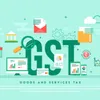
India is one of the largest markets for online gaming, and as per a survey, the number the country had 421 million gamers in 2022—expected to exceed 440 million this year.
Online games could be plain video games or involve money. Gaming companies host games on online platforms or applications to enable the play of games with or without a stake.
This article will examine some nuances of online gaming that involve money or stakes from the Goods and Services Tax (GST) lens.
Game of skill or game of chance?
A game of chance does not require particular skills for a user to win; the outcome is based purely on chance or luck. Most elements of the game are so random that it is almost impossible for anyone to see a pattern.
On the other hand, a game of skill requires some skill from the player—mental acuity, intellect, some special skills, or even brute strength. In the Indian context, a game could either be classified into the two categories based on the preponderance/predominance test.
Indian courts have used the preponderance test to determine whether the gaming format is a game of skill or chance. The controversy around the classification of games is dated but well-settled.
A constitution bench of the Supreme Court vide two decisions in RMD Chamarbaugwala held that contests involving significant skills were not gambling. It observed that the game of rummy requires many skills to win, such as a player’s emotional maturity, mathematical skills, memory, analytical skills, etc.
Later, in K. Satyanarayana, the top court observed that rummy requires a certain amount of skill because the fall of the cards has to be memorised, and the building up of rummy requires considerable skill in holding and discarding cards. The expression ‘mere skill’ means the presence of skill of a substantial degree.
The Supreme Court in Dr K. R. Lakshmanan held that horse racing is neither ‘gaming’ nor ‘gambling’ as defined under certain state statutes.
Recently, Indian High Courts (not in the context of the GST law) ruled that online fantasy sports games are not gambling, i.e., it is a game of skill.
.thumbnailWrapper
width:6.62rem !important;
.alsoReadTitleImage
min-width: 81px !important;
min-height: 81px !important;
.alsoReadMainTitleText
font-size: 14px !important;
line-height: 20px !important;
.alsoReadHeadText
font-size: 24px !important;
line-height: 20px !important;

MeiTY
The Information Technology (Intermediary Guidelines and Digital Media Ethics Code) Rules, 2021 (IT Rules, 2021) provides a regulatory framework and places obligations on social media intermediaries and online gaming intermediaries.
The IT Rules, 2021 distinguishes between online real money gaming involving wagering on an outcome and permissible online real money gaming (skill-based games).
Levy of GST
It is imperative to ascertain the true nature of online games and the “supply” involved to appropriately classify and levy GST. Online gaming companies charge platform fees or Gross Gaming Revenue (GGR) as a percentage of the prize pool, and historically, they have discharged GST at 18% on the GGR.
However, the revenue department has hedged its bet differently by seeking to levy 28% GST on the total prize pool (deposit amount), alleging that the offerings of the platform qualify as an actionable claim.
A game of chance differs from a game of skill, where the former qualifies as wagering or gambling, and consequently is an ‘actionable claim’ for the GST law.
Decision in Gameskraft
The online gaming industry was stumped by a show cause notice issued to Gameskraft Technologies Private Limited for Rs 21,000 crore of GST. The issue is whether the online (rummy) game is a game of skill—to not be treated at par with a game of chance—and so, the highest rate of GST.
Addressing the writ petition, the Karnataka High Court relying on its decision in All India Gaming Federation held that online rummy is a game of skill and cannot be categorised as gambling or betting, and hence, not taxable at 28%.
Against the decision in Gameskraft, the GST department filed a Special Leave Petition in the apex court. Some issues the Supreme Court will eventually clarify on are:
- Whether a game played for stakes (be it skill or chance), i.e., on an uncertain and unknown outcome to reap an amount more than that staked qualifies as wagering, betting, or gambling.
- Whether games of skill (such as online rummy, fantasy sports, etc.), can be classified and taxed in the same manner as games of chance or betting, lottery, i.e., treating un-equals as equal.
- An actionable claim is a claim to any debt, i.e., the prize pool. The pooled money is held in a fiduciary capacity and is not revenue for the platform. Lack of nexus of taxable event with the charge of tax; Courts have held that there must be a nexus between the taxable event and the charge of tax. In online gaming, the supply by the platform is that of the platform itself for which it receives GGR and not actionable claims. In the case of horse racing, the Karnataka High Court struck down the GST valuation rule to effectively rule that GST should be levied on the commission received and not on the amount collected (bet).
Ranjeet Mahtani is a Partner at Dhruva Advisors LLP.
Edited by Suman Singh
(Disclaimer: The views and opinions expressed in this article are those of the author and do not necessarily reflect the views of YourStory.)


![Read more about the article [Funding alert] Hike onboards Elad Gil, Mark Pincus & Shishir Mehrotra as investors](https://blog.digitalsevaa.com/wp-content/uploads/2021/11/Imageo0ki-1637742598629-300x150.jpg)







